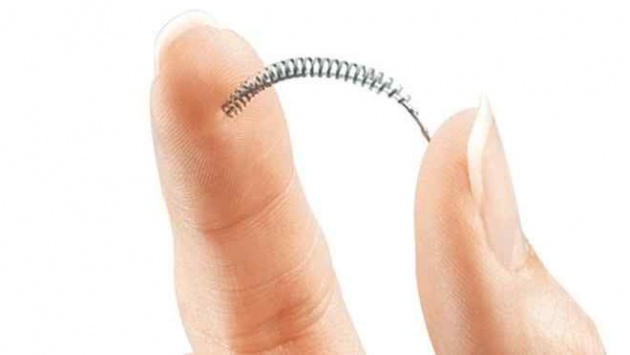UK regulators are reassuring women the permanent birth control implant Essure is safe despite concerns in the US.
The MHRA says it will continue to monitor all side-effects and advises UK women who experience problems to see a doctor.
The sterilisation device blocks off the fallopian tubes so no egg can travel from the ovaries to the womb.
But some users say they have been injured by it.
Although rare, there have been instances of the device puncturing neighbouring organs, such as the bowel.
Other women have reported nasty side-effects, such as allergy to nickel found inside the implant.
US regulator the Food and Drug Administration has been holding meetings to evaluate the benefits and risks.
It says it has received more than 5,000 reports about Essure in the past 13 years.
The UK's MHRA says it cannot provide any such data to the BBC, although it does collect it.
But it insists the device - given to about 1,500 women a year in the UK - is safe.
A spokeswoman said: "We currently have no information to suggest that Essure devices used in the UK are unsafe to use.
"We liaise regularly with the US FDA and are aware of the recent open meeting of their obstetrics and gynaecology devices panel discussing post-market experience with the Bayer Essure female sterilisation device.
"We continue to monitor all adverse incidents reported to us.
"If any women experience any problems, they should discuss this with their GP.
"We encourage the reporting of any adverse incidents with medical devices to MHRA. "
Adverse incidents can be reported to the MHRA on its website or by calling 020 3080 7080.
A spokeswoman for Bayer said: "Bayer is strongly committed to women having access to different methods of birth control options, because no form of birth control is without risk or should be considered appropriate for every woman.
"It is important that women discuss the risks and benefits of any birth control option with their physicians."
Essure is usually inserted under local anaesthetic and does not require cuts to be made in the abdomen.
Dr Kate Guthrie, of the Royal College of Obstetricians and Gynaecologists, said Essure was a good option for some women.
"It's quite a simple procedure to do and doesn't require surgery, unlike other sterilisation methods," she said.
"But as women and clinicians, we need evidence that it is safe.
"I'm confident in our system of regulation.
"If women are getting side-effects, then we need to know about it."



